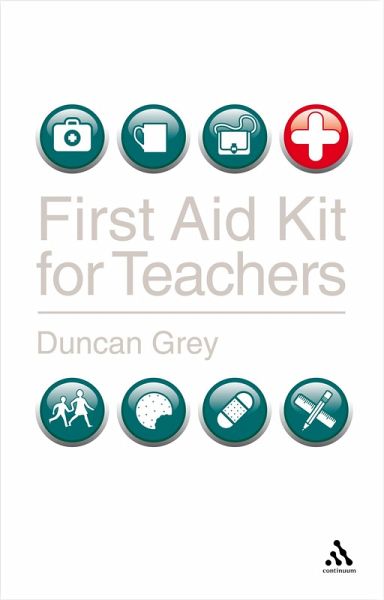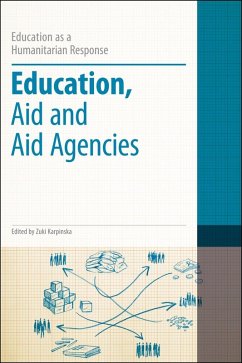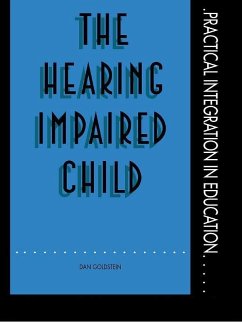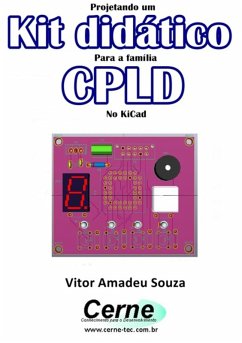
First Aid Kit for Teachers (eBook, PDF)

PAYBACK Punkte
8 °P sammeln!
"Every teacher benefits from advice. Sometimes you walk into a situation where, as an adult professional amongst children and young people, you are expected to resolve the problem. If you don't, you could be accused of neglect. If you resolve it inappropriately you could be accused of unprofessional behaviour. Non-teachers rarely appreciate how many personal interactions there are during a day - the vast majority of which are in public view and on which you will be judged.First Aid is sensible action for anyone who is on the spot when a problem occurs. It offers considered advice when you don'...
"Every teacher benefits from advice. Sometimes you walk into a situation where, as an adult professional amongst children and young people, you are expected to resolve the problem. If you don't, you could be accused of neglect. If you resolve it inappropriately you could be accused of unprofessional behaviour. Non-teachers rarely appreciate how many personal interactions there are during a day - the vast majority of which are in public view and on which you will be judged.
First Aid is sensible action for anyone who is on the spot when a problem occurs. It offers considered advice when you don't have the time to consider all the options. It tries to give helpful advice on preventing the problem getting worse and starting things on the road to recovery. It offers reassurance when everyone else is panicking. It may also cover your back."
Duncan Grey
First Aid is sensible action for anyone who is on the spot when a problem occurs. It offers considered advice when you don't have the time to consider all the options. It tries to give helpful advice on preventing the problem getting worse and starting things on the road to recovery. It offers reassurance when everyone else is panicking. It may also cover your back."
Duncan Grey













